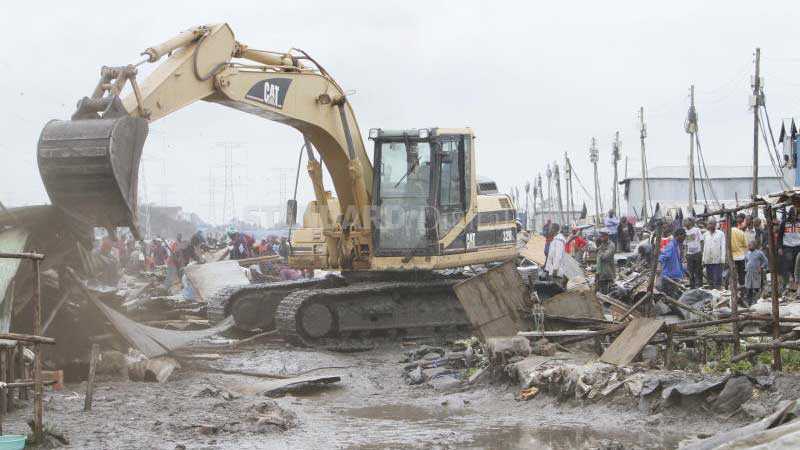×
The Standard e-Paper
Smart Minds Choose Us

Families whose homes were demolished, last week, in Mukuru kwa Reuben and Sinai slums were living on the land illegally.
It has also come to light that the squatters had been duly compensated so as to vacate the area.